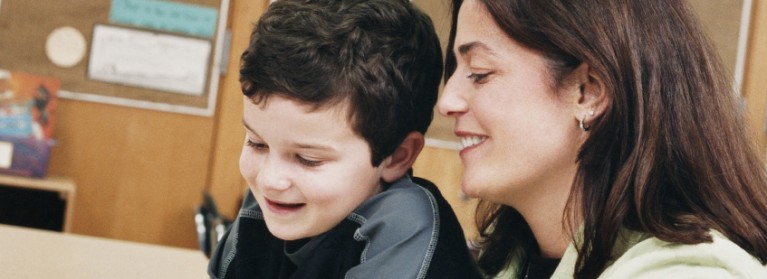Bullying
Featured in School-aged
Unfortunately bullying is prevalent in most schools across the country. Bullying can be verbal, emotional, sexual or physical. School bullying is defined as unwelcome behaviors among children combined with a perceived imbalance or lack of power. The bullying behavior must be actually repeated and aggressive in nature. If the behavior has not repeated there must be strong inclination that it would repeat to be defined as such.
Methods of Discipline
The long-term effects of bullying on a school-aged child are numerous. These effects can include anxiety, depression and sensitivity. Parents cannot turn a blind eye to school bullying.
1. Listen to your child. Younger children may not recognize bullying or may be somewhat reluctant to report it; however, school-aged children are better able to recognize it. Most children will open up and talk about bullying when they know someone is willing to listen and help. By listening to your child, you should be able to determine how to get involved.
2. As parents, there is a responsibility to ensure incidents of bullying are timely reported and that action is taken. If action is not taken, the issue will get worse – not better. So intervention is a vital part of dealing with bullying and how to intervene is just as essential. Be sure to get the teacher and even the principal of your child’s school involved, as they are often in a position to monitor the situation.
3. Praise your school-aged child for doing the right thing and telling you about the bullying. Children often are worried that he or she is snitching or tattling when telling others about bullying. They may even be worried that parents will be disappointed or upset with them. By praising your child for doing the right thing, be sure to emphasize that it is the bully who is in the wrong and not your child. Explain how important it is that reporting bullying is done, especially to keep people safe.
4. Monitor your child to make sure he or she is doing ok. If your child seems to be more withdrawn, depressed or just not acting like him or herself, make sure you talk to your child. It might even be necessary to seek counseling or other help for your child.
5. Remind your child that he or she is not in this alone. Kids can often feel isolated and may close up, which could be detrimental to your child’s mental health.
Helping Your Child Cope
As parents, we can help children learn how to appropriately deal with bullying if it occurs. It might be very tempting to tell your child to stand up for him or herself or to fight back. In today’s world, this is usually the wrong advice to give your child. It is very difficult and unwise to tell your child to put the bully in his or her place, as that can quickly escalate into a violent situation. Instead, it is best for a child to walk away from the situation, hang out with other kids and to tell an adult as soon as they can.
As bullying can erode children’s self-confidence, be sure to encourage them to hang out with friends who can offer a positive influence. Get your child involved in things that interest him or her – sports, clubs and so on. Another suggestion is to ask about the good parts of your child’s day to show them there are still good things going on in their lives. It may also be time to do more things as a family and spend quality time together.








